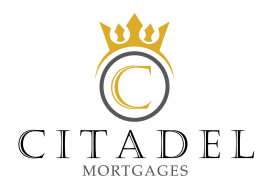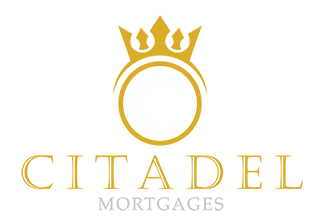How to Keep Your Credit Clean During the Home Buying Process
Imagine that you’re looking for a new home. You put in an application with your mortgage broker or bank to be pre-approved. After a bit of waiting, they come back with great news. You are pre-approved! This notice is fantastic news that gives you the all-clear to find your dream property. While shopping for your home, you make a big purchase or two (maybe these are items you’re going to put in your dream place). Also, you open another credit card and maybe consolidate some debt.
After putting in your perfect offer and going through the mortgage closing process, your lender informs you that you no longer qualify. What happened? How did you go from being pre-approved to scrambling to keep the dream of homeownership alive?
This scenario, unfortunately, happens more than it should. If you have been pre-approved, you need to take special care to ensure that your pre-approval remains valid and that you don’t have any issues down the road.
What Is a Pre-Approval?
A pre-approval is essentially a best-faith guess as to what the bank will lend you and at what rate. The bank uses your current credit score, takes the income numbers with proof that you give them, and does a series of calculations. They will look at your TDS and GDS ratios. They will consider the property type and a few other factors. After these calculations, the bank will issue a pre-approval if you can get a mortgage or a decline if you cannot.
Some financial institutions will be more thorough than others. You might have to provide proof of other income (like investment income), or the lender may take you at your word. Regardless, you will have to have evidence of all your income at closing, so you will want to make sure that all your numbers are correct. It can be easy, for example, to include expected bonuses from a new job in your income, but unless you have a history of those bonuses, the bank cannot count them.
Think of a pre-approval as a guarantee that if everything you stated and showed was real, and it is the same at the point of closing, then the bank will underwrite a mortgage for you.
The Difference Between Then and Now
The pre-approval is for some state in the past. Various things can happen between the time you were issued the pre-approval and the close itself. You might have a job loss, or you might have a significant, unexpected expense. All of these could potentially affect your pre-approval and jeopardize your ability to close on your home.
If you want to close on your property after being pre-approved, there are three key actions that you will want to avoid.
Do Not Open New Credit or Close Old Credit
Do not open new credit cards or loans. Opening these accounts could have detrimental effects on your ability to complete the mortgage process. Banks do not like to see someone who is looking for new credit just before they issue what is probably going to be the most significant loan of someone’s lifetime.
Oddly, closing a credit account can hurt your credit score. If you close an old, unwanted account, your overall average length of credit decreases. By having a shorter time of open credit, your score will decrease. Therefore, it’s best to keep your credit accounts as they are.
Do Not Make Any Large Purchases
Putting a large purchase on your credit card could cause issues. As a simple example, suppose you have a couple of credit cards with a combined limit of $10,000. You are using $2,000 of that limit. Now you put a $5,000 TV on one of those cards. Your credit score will plummet, and it could be significant enough that it falls below the threshold of the institution. They may then refuse to issue the loan.
Your best bet is to keep your spending relatively minimal until the mortgage process is complete. Save the celebration for the first day you are the proud owner of your new property!
Be Mindful of Your TDS and GDS
Financial institutions consider your TDS and GDS ratios. The GDS is the cost of your housing relative to your income, whereas the TDS is the cost of your housing plus other debt obligations compared with your income. Usually, GDS cannot be higher than 35%, and TDS cannot be higher than 42% [1].
In reality, this means that your monthly payments and monthly income are what matter. Suppose you make $5,000 a month. You currently have $20,000 in debt at 10% interest that requires a small monthly payment of $200. You want a home that will have a mortgage of $1,500. Your GDS is 30%, and your TDS is 34%. Since these ratios are below the threshold, you qualify easily for a pre-approval.
Now, you receive an offer out of the blue for a credit card consolidation loan at 0% APR over 12 months. Great! You can consolidate your debt at 0% APR and save quite a bit in interest. Your payment is $833 per month to pay the 0% loan back. Unfortunately, while your GDS remains at 30%, your TDS has now shot up to 46%, thereby disqualifying you for the mortgage.
Be aware of what your monthly obligations are and how changes or extra purchases you make will affect your TDS calculation. Make sure you get your GDS and TDS numbers from your mortgage broker.
Keep The Status Quo
The bottom line is to keep the status quo once you have obtained your pre-approval. Keep spending exactly like before. Keep the same accounts open. Don’t try and consolidate (even if it is a tempting offer) as you might wind up messing with your ratios. Your goal should be to have the pre-approval amounts match closely with the ones at closing, thereby ensuring you have the highest probability of closing.
As always, consult with your mortgage broker about your plans and goals. They will ensure they find the loan product that is most likely to close successfully!
By using a mortgage agent or mortgage broker from Citadel Mortgages, you will be able to ask all the questions you have and be ensured you get the best advice and mortgage product for your mortgage needs. Contact us here at Citadel Mortgages to become mortgage-free sooner!
Want to learn more? Call us toll-free at (866) 600-8762 Learn More Today
If your ready to proceed with a mortgage approval, refinance or equity take out a mortgage then apply now by using this link – – https://bit.ly/3flfnzz
For our current best rates and offers please visit our rate offer page HERE
[1] https://www.cmhc-schl.gc.ca/en/finance-and-investing/mortgage-loan-insurance/calculating-gds-tds

Unexpected costs when buying a home in Canada
When buying a home in Canada, there are several unexpected costs that buyers should be aware of to avoid financial surprises. Some of the key

Considering An Early Mortgage Renewal
Why consider renewing your mortgage ahead of time? Well, one big reason is changes in interest rates. If rates drop, jumping on an early renewal

How to get a HELOC on an Investment Property in Canada
To get a Home Equity Line of Credit (HELOC) on an investment property, you need to follow these steps: 1. Know Your Finances: Estimate the

Expert Advice: Buying a House in Cash in Canada
In exploring the possibility of buying a house in cash in Canada, it’s essential to understand the various aspects that come into play. Here’s a

Average Down Payment for a House in Canada
According to the Canadian Real Estate Association, the average house price in Canada hit around $637,673 in August 2022. This means if you’re looking to

Assumable Mortgages: An In-Depth Look
Assumable mortgages are a unique financing alternative that could potentially save you thousands of dollars and simplify the home-buying process. But what exactly are they





